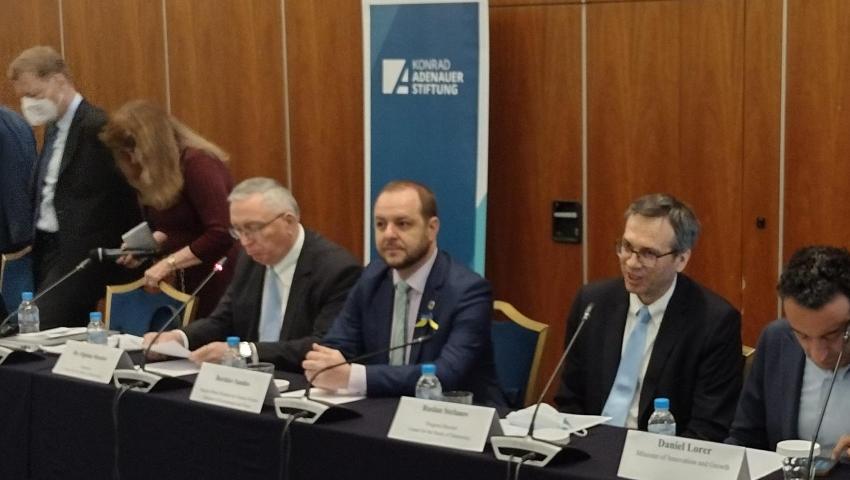The government is considering setting up a new fund to raise funds from CO2 emissions
Bulgaria intends to apply to host the UN Climate Conference COP 29

Photo: Georgi Velev / 3eNews
Georgi Velev
The Bulgarian government is looking for an opportunity to create a national financial instrument to receive funds from the sale of CO2 allowances. The idea is to use the accumulated funds to co-finance large projects for decarbonization and energy transition in our country. This was stated by Deputy Prime Minister for Climate Change and Minister of Environment and Water Borislav Sandov during the international conference "Energy Security and Climate Change: New Dimensions after the Aggression against Ukraine". Currently, the proceeds from the sale of CO2 allowances are collected in the "Security of the Electricity System" fund and the funds support businesses and consumers, thus even limiting the rise in electricity prices.
Another interesting idea of Minister Sandov is the intention of Bulgaria to apply to host the UN Climate Change Conference - COP 29 in 2024. According to him, so far no Eastern European country has hosted such an event to prevent climate change on the ground.
At the moment, our country emits 48 percent less emissions than in the reference year 1988, Sandov told energy policy experts. According to him, however, since 2011 there has been a gradual increase in emissions, especially in the transport sector, where they have risen by as much as 40% compared to the base year.
The current share of emissions is mainly due to the energy sector, mainly due to lignite coal, which is burned in Bulgarian power plants and in part of the industry. They account for 58 percent of all emissions, Sandov said. Emissions from transport are 26 percent and those from industry are 11 percent.
In the National Plan for Reconstruction and Sustainability, Bulgaria has set reforms and investments that will lead to increased energy security based on renewable energy sources and other mechanisms. Bulgaria is committed as part of a reform to decarbonise the energy sector and reduce coal emissions by 40 percent by 2026. It is planned to build 3.5 gigawatts of new RES capacities, and here it is mainly planned to build solar and wind power plants for own use. According to the commissioner, the free industrial areas and degraded areas should be utilized and used for the construction of solar and wind parks. Such areas are usually located near the electricity transmission network and are exclusive state property, which allows for "fast tracks" for cooperation with businesses.
Minister Sandov also believes that the development of hydrogen for industrial purposes should be given an opportunity. An analysis of the potential of geothermal energy is currently being prepared, and two pilot projects will be funded through the recovery plan. He also recalled the state's intention to build 10,000 charging stations for electric cars to stimulate electric mobility in our country.
With regard to carbon sequestration, the Minister of Ecology is in favor of using natural approaches - so it is planned to plant 100 million trees by 2030, as part of the European goal of planting 3 billion trees. Significant increase and restoration of natural areas and wetlands, which are a serious catcher of emissions, is also planned. It became clear at the event that, in general, the Ministry of Ecology in our country is not convinced of the possibilities of the technology for capturing and storing carbon dioxide, regardless of the storage facilities. According to experts, this is still an expensive and insufficiently well-formulated technology.
